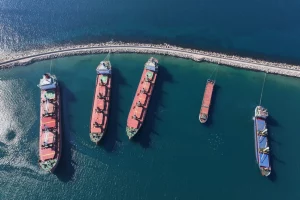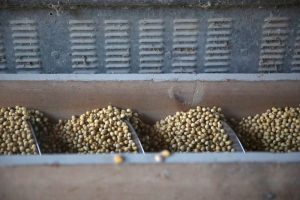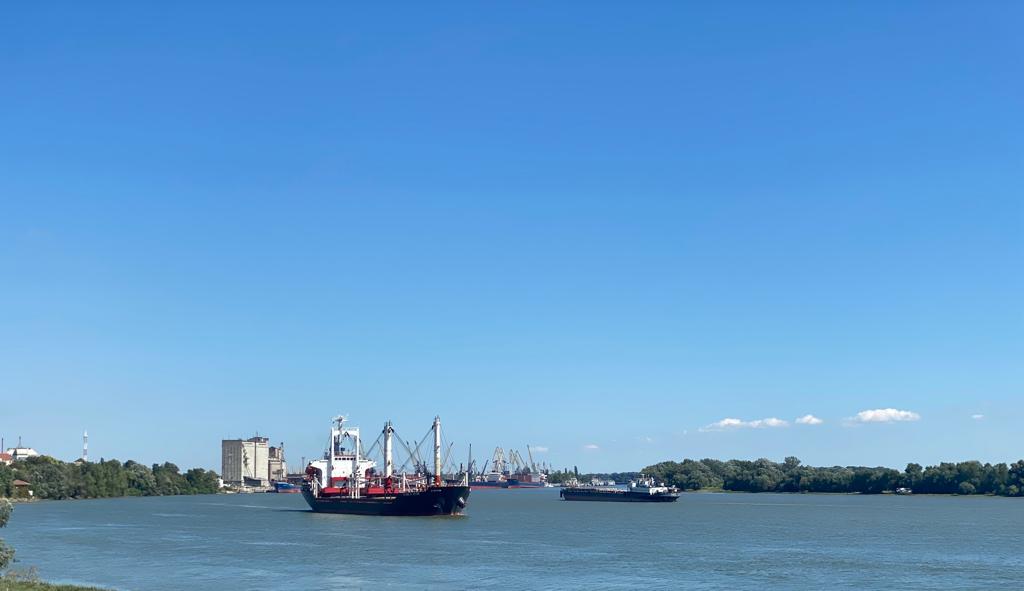It is necessary to eliminate difficulties with the access of Ukrainian grain to the markets, and not to promote earnings from these difficulties
The main problem of Ukrainian agricultural exports is not the physical narrowing of access to markets, but the system of economic relations, which does not stimulate stakeholders to eliminate the difficulties of Ukrainian farmers with access to markets. Such a point of view was expressed by Yuriy Shchuklin, an expert on the logistics market, a member of the EBA Logistics Committee.
“During the 17 months of the war, the private and state stakeholders of Ukraine and the EU did not show interest in creating and developing alternative logistics routes, whose absorption volumes and cost would correspond to the parameters of Black Sea logistics. After all, the fewer logistics routes farmers have and the worse their capacity is, the higher the pressure on logistics bottlenecks, the higher the cost of access to them and, accordingly, the more expensive logistics at each stage (the cost of a wagon, transshipment, etc.). In such conditions, the owners of these resources simply make money from the difficulties of farmers, without making any special efforts. And the emergence of new logistics routes would force them to strain and compete for cargo,” the expert explained.
Yuriy Shchuklin also noted that last year’s cycle of rising prices of agricultural logistics took place during the grain corridor, albeit limited, in one form or another. The suspension of the grain agreement and the dramatic increase in the riskiness of Black Sea logistics form the prerequisites for a new cycle of increasing the cost of access to markets. According to the expert, the focus of the economic stakeholders of Ukraine and the EU on the profitability of servicing Ukrainian farmers’ access to sales markets causes the absence of actions that could make logistics cheaper for farmers.
“In Ukraine, traders compete with agricultural producers for access to markets by buying out the logistics chain. Farmers do not have the opportunity to directly buy a ticket for their cargo to the markets, and by default they give part of their income to intermediaries who do not create additional value in the agricultural cycle,” Shchuklin said.
According to the expert, the unpredictability of logistics, neither in terms of terms nor in terms of cost, cut off Ukrainian agricultural producers from forward markets with attractive prices to the spot segment. Whereas for traders, who usually “negotiate from wheels” and trade short positions, uncertainty is business.
“When, a year ago, as an adviser to the former chairman of the board of Ukrzaliznytsia, I warned that under such a policy we risk losing markets, many called me a panicker. Before the war, the largest markets for Ukrainian grain were China and Egypt, now the structure of these markets has changed. The niche of Ukrainian agricultural products began to be filled by the Russian Federation, which, against the background of obstacles for Ukrainian grain, increased exports to a record. The aggressor state clearly follows the goal: to undermine the capabilities of Ukraine as an exporter of agricultural products and to gain the leverage of grain blackmail of the world. And what is the goal of Ukraine and its neighbors from the EU, and what does it consist of, apart from promoting the extra income of traders and operators of the logistics chain on both sides of the border? – emphasizes the expert.
Yuriy Shchuklin warned that the lack of action in the direction of removing obstacles to the access of Ukrainian products to the markets threatens the final disappearance of incentives for producers to grow grain and oil crops for export. This creates the prerequisites for the capture of key markets by the aggressor state. It is necessary to change approaches to the organization of Ukrainian agricultural exports both at the level of technology and at the level of consciousness.
“It is necessary to change the paradigm of attitude towards Ukrainian agricultural export and consider it not as a source of additional income of the logistics sector, but as a component of food security. Moreover, this change should take place at the level of consciousness of both Ukrainian and European officials. In order to prevent Russian food blackmail and prevent Ukraine from losing agricultural markets, cargo logistics operations should be transferred to an automated system. The automated system, having a mathematical model, unlike a person, analyzes all logistics resources at the same time, all their capacity, free places, and does not allow rescheduling of the opportunity and crisis situation, which usually leads to either an increase in the price or downtime,” he said curiously. Yury Shchuklin. .
According to him, with constant information about logistics routes, the system will calculate the optimal route – without traffic jams and unnecessary queues at elevators or customs borders, will indicate the optimal time when you need to be on the elevator to ship or at the customs point to pass it as quickly as possible .
“Today, two-thirds of the price of transport and forwarding services for Ukrainian agricultural products is formed by funds that are not included in the production of works and do not create additional value in the agricultural cycle. The implementation of the system that I propose will bring the cost of services at all stages of the chain to an economically justified level. This is also very important for international traders, as they will have real data online and will no longer need to feed our internal corruption and bureaucracy. Ukraine is already known to the world as a state with high development of digital technologies and services. We must take a proactive position and not only ask our allies to move from concern to action, but to offer the world new models of economic interaction and cooperation, where participants in the logistics chain will earn not from the losses of our farmers, but thanks to their successes and profits,” Yuriy Shchuklin summarized.





